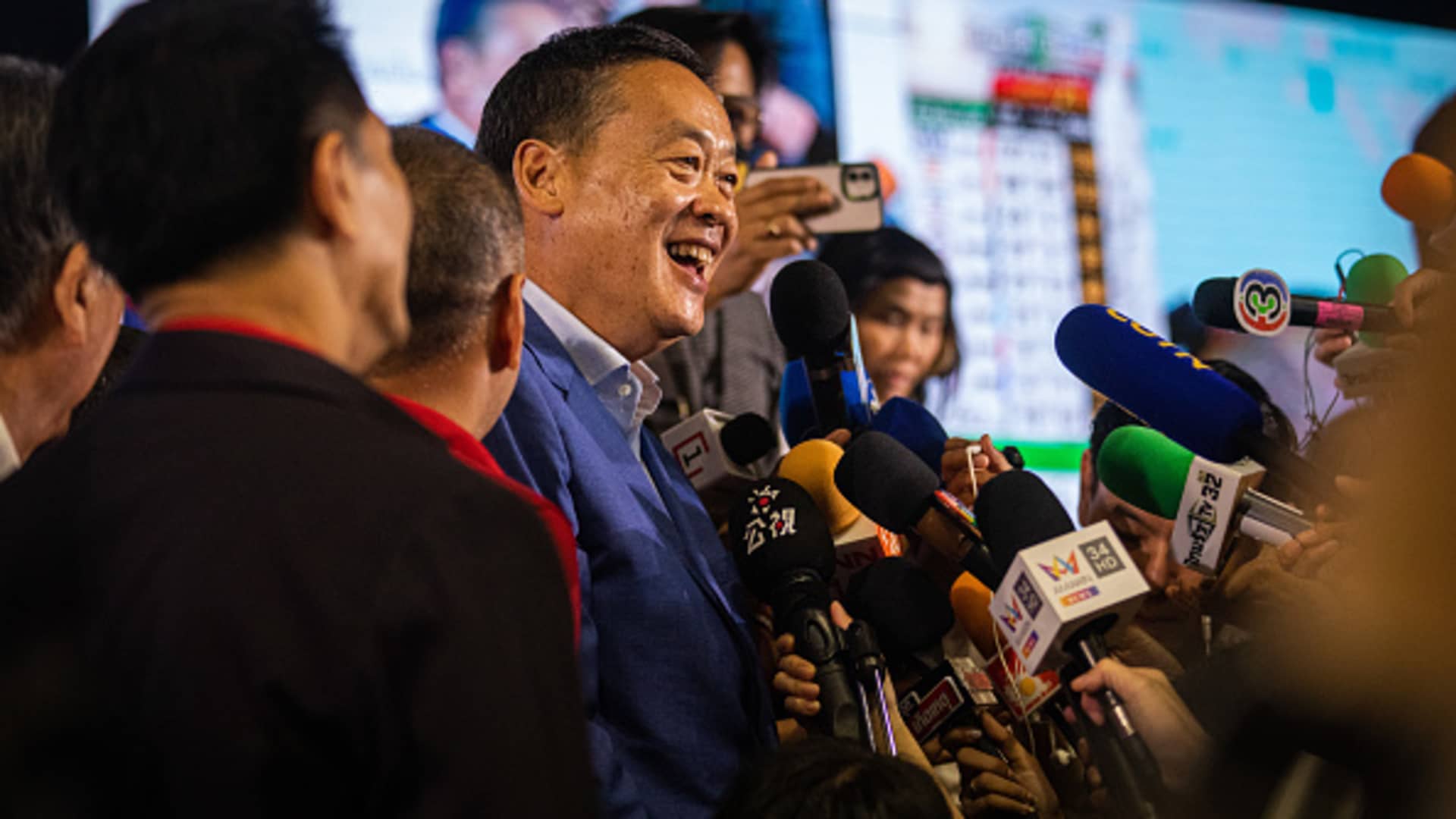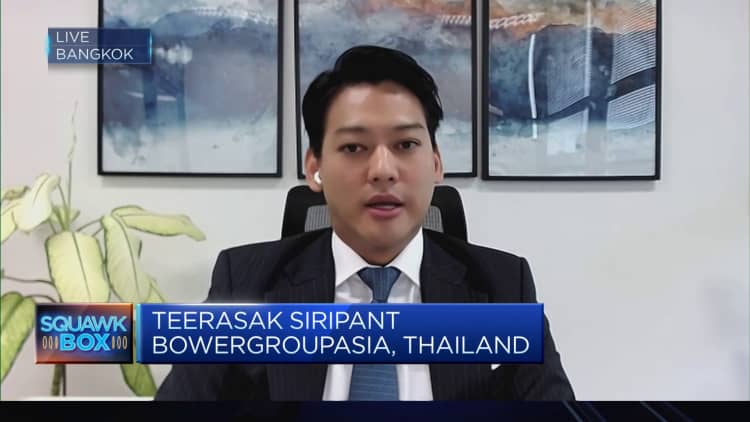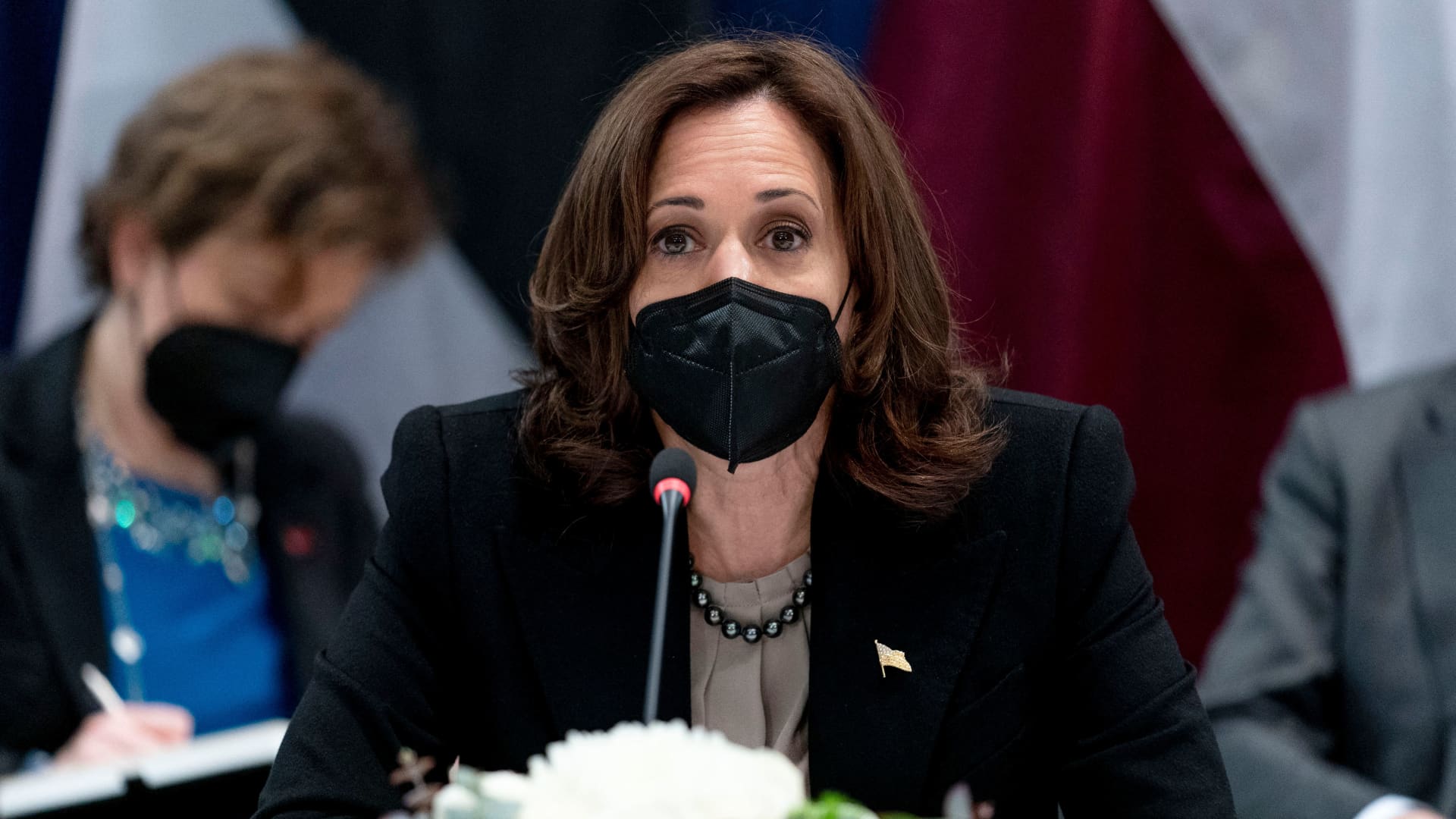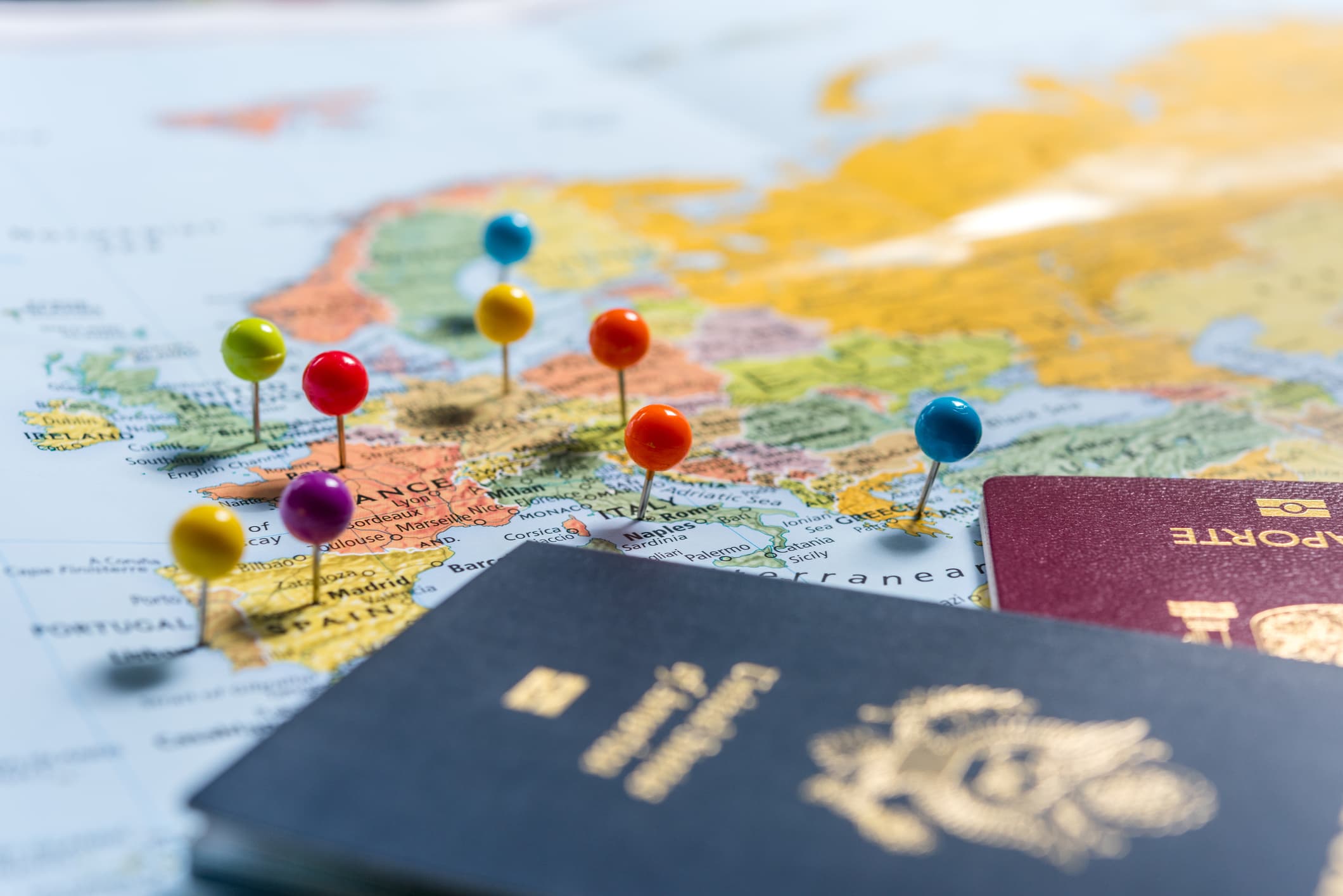Srettha Thavisin elected Thailand's new prime minister after months of political deadlock
Thailand has been administered by a caretaker government since March, with its parliament in deadlock.

Pheu Thai Party’s Srettha Thavisin greets the press.
Lauren Decicca | Getty Images News | Getty Images
The Pheu Thai Party's Srettha Thavisin will become Thailand's prime minister after clinching parliamentary support in a Tuesday vote.
Srettha, a real estate mogul who entered the Thai political landscape mere months ago under the Pheu Thai's mantle, required 375 votes to become premier and set up Bangkok's next government. He won 482, his party said in a Google-translated Facebook post on Tuesday.
Thailand has been administered by a caretaker government since March, with its parliament in deadlock.
The incoming prime minister now faces a task of revitalizing Thailand after nearly a decade of military rule and boosting its economy, which logged a 1.8% year-on-year GDP increase in the second quarter, according to the National Economic and Social Development Council — falling short of the 3.1% expansion anticipated by a Reuters poll.
The Move Forward party won a historical election in May, but was later blocked from pursuing a bid when its leader, U.S.-educated liberal Pita Limjaroenrat, fell 51 votes of the majority needed from Thailand's bicameral National Assembly to clinch the top job.
Critically, the election victory of Move Forward paved the path for progress away from the military-backed rule of Prayuth Chan-ocha, who assumed power in a 2014 coup. Pheu Thai initially supported the party, but progressed with its own bid for power after Move Forward's failure to gain support.

Pheu Thai, Thailand's second-largest party, on Monday announced it had formed an 11-party alliance spanning 314 votes to form a government, according to a Google-translated Facebook post.
Controversially, the proposed coalition includes the pro-military parties of Ruam Thai Sang Chart — known as the United Thai Nation Party and associated with Prayuth Chan-ocha — and the Palang Pracharath Party of Deputy Prime Minister Prawit Wongsuwan.
Srettha's victory comes hours after fugitive former premier Thaksin Shinawatra, 74, returned on Thai soil for the first time since 2008, ending 15 years of self-exile after being jailed in absentia for abuses of power.
He now faces eight years in prison. Thaksin founded an earlier incarnation of the Pheu Thai.
"Tomorrow at 9 o'clock I would like to request permission to return to live on the land of Thailand and share the air with the Thai brothers and sisters too," the former premier said Monday on the X social media platform, previously known as Twitter, according to a Google translation.
Earlier on Tuesday, Srettha extended "congratulations to the Shinawatra family and former Prime Minister Thaksin, who will return to Thailand today" in Google-translated comments on X.
"It is probably not a coincidence that Thaksin has returned on the very same day that a sympathetic government was brought to power. It is possible that Thaksin will now request a pardon — but that is not something that the Pheu Thai government can bring about on its own," said political analyst Ken Mathis Lohatepanont.
He added that the 11-party coalition is likely to hold for now, united by an interest in keeping Move Forward from entering government.
"However, there is likely to be a degree of policy disagreement; the leader of the conservative United Thai Nation Party, for example, has promised to ensure what they see as "mistakes of the past" are not repeated," he said.

— CNBC's Jenni Reid contributed to this report

 Lynk
Lynk 






























